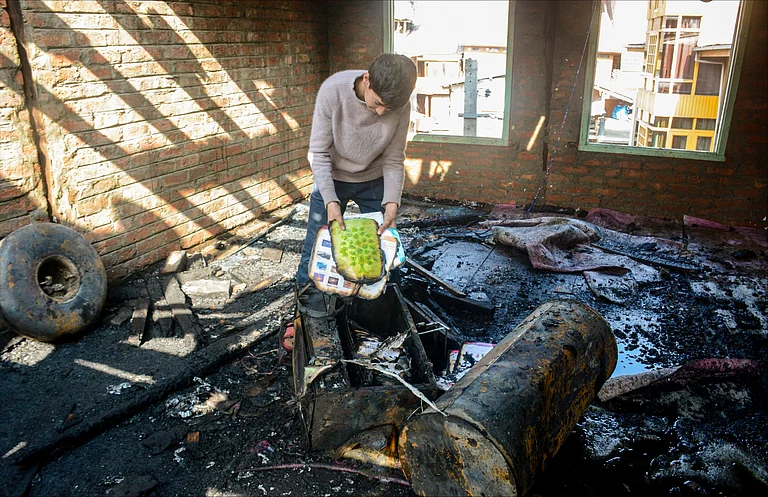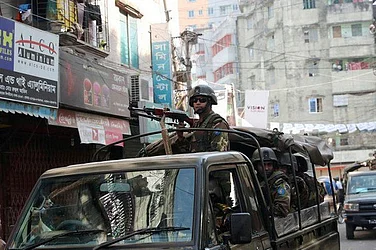When the Taliban retook Afghanistan in 2021, Western powers had hope that the organisation would forgo their fundamental misogynist philosophy to be accepted as a legitimate government on the international stage. However, three years later, the Taliban enacted the “Law on the Promotion of Virtue and the Prevention of Vice (The Law)”, which imposes strict measures to restrict women’s lives.
Made Invisible In Their Own Country
The Law has caused widespread fear and condemnation from international bodies such as the United Nations, Amnesty International, and Human Rights Watch. Calling The Law “intolerable,” Spokesperson for the Office of the United Nations High Commissioner for Human Rights Ravina Shamdasani said it silences women’s voices and deprives them of their autonomy, “effectively attempting to render them into faceless, voiceless shadows.”
According to The Law, women in Afghanistan cannot go out in public unless their bodies are covered head-to-toe. The Law also prohibits women from speaking outside their homes, or being heard laughing or singing. Women cannot look any man who isn’t part of their family in the eyes. Further, women cannot leave their houses unless accompanied by a male relative. The Law makes it impossible for women to work in most industries.
These regulations, published in August 2024, echo the 1996 Taliban regime when women’s rights and movements were wholly denied. Many Afghan women’s rights activists and Amnesty International, along with other human rights bodies, are calling the Taliban’s treatment of women and girls Gender Apartheid. They are campaigning for Gender Apartheid to be criminalised under international law.
“We are joining the calls of courageous trailblazers, including women of Afghanistan, Iran and beyond, who have led the way in demanding recognition of gender apartheid in international law. States must heed this call. This form of institutionalised oppression must be named,” stated Agnès Callamard, Amnesty International’s Secretary General, in June 2024.
Sexual and Psychological Torture
Since the Taliban’s return to power in Afghanistan, the lives of women have drastically changed. Promises of a more moderate rule were quickly overshadowed by the enforcement of strict policies that have stripped women of their fundamental rights.
In July, The Guardian, in collaboration with Afghan women journalists who are working in secret, reviewed videos and then reported that the Taliban was using gangrape as a torture method for women’s rights activists in their prison.
In its submission to the UN Special Rapporteur this year, Azadi-e Zan, a network of volunteers that has been helping Afghan women’s rights defenders escape the Taliban since August 2021, reported that “five publicly known women who had been arrested for their women’s rights work and were detained or disappeared for many months.” The report added that while more women had been arrested, their families were under threat to not report it. “The security situation for these women and their families remains incredibly dire,” said the report.
The report also states that the Taliban has used “forced nudity, fondling, genital electrocution, rape, gang rape, and sham marriage.” The Taliban members also force women to watch other women being subjected to these acts. Further, the report adds that the Taliban “recorded them on video with the expectation of perpetuation of social shame and stigma.”
Azadi-e Zan’s report contains first-person accounts of women who have since escaped or whose stories have been collected. These include stories of beating, electrodes being attached to genitals, and more.
In August, The United Nations Assistance Mission in Afghanistan (UNAMA) expressed deep concern over the enactment of The Law by the Taliban.
The UN Special Rapporteur, barred by the Taliban from entering Afghan territory, met with Afghan men and women in Qatar last week to discuss the situation in the country.
Resilience Amid Oppression
Afghan women have shown remarkable resilience amid the oppression they are facing. Like Azadi-e Zan, underground networks have formed to help women and girls escape the Taliban-ruled country. Some reports say that girls are being educated by older women in secret.




























